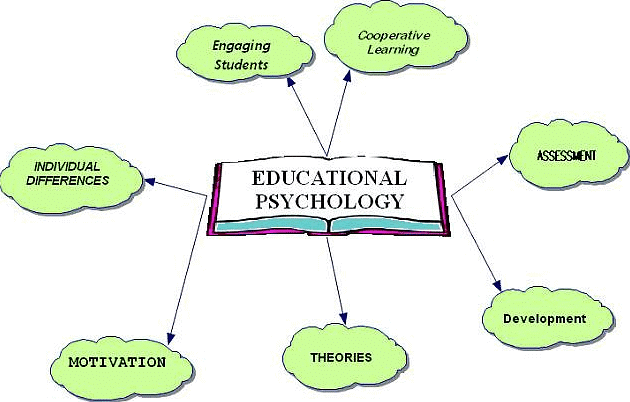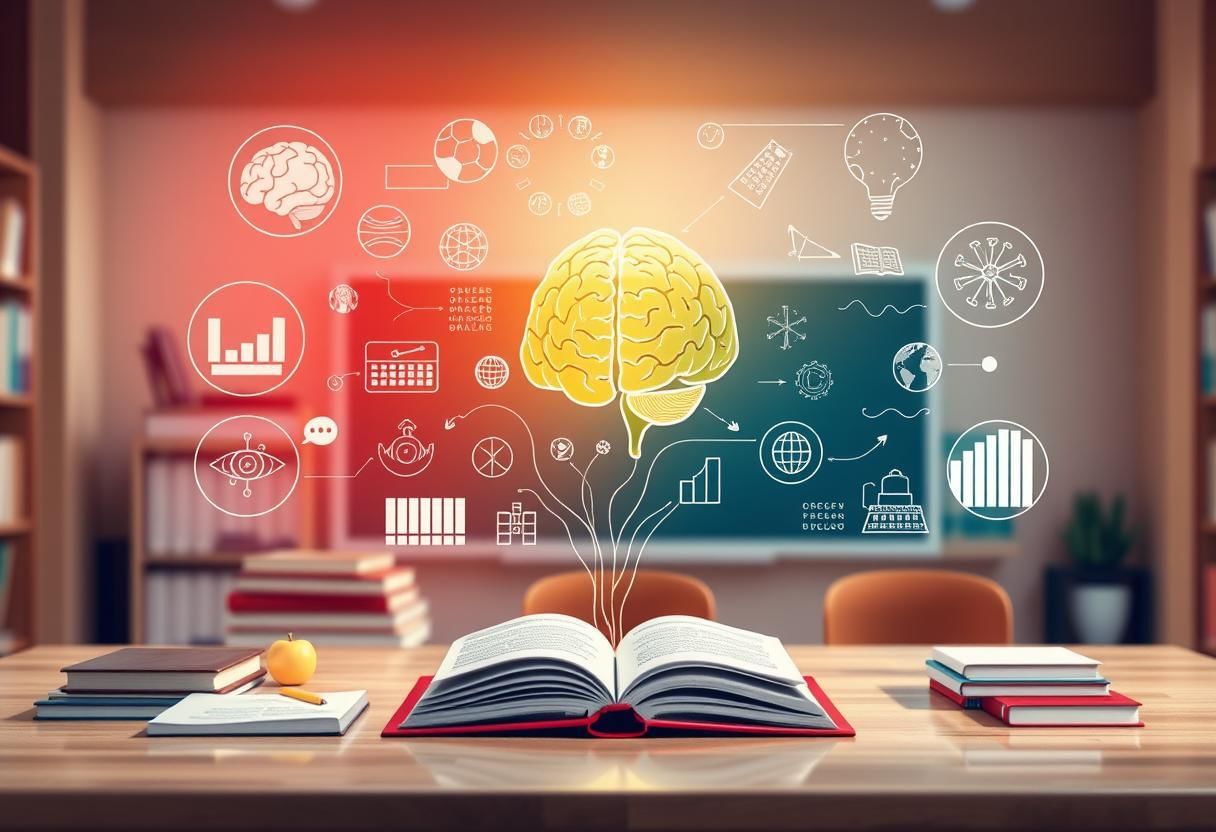B.Ed Entrance Exam > B.Ed Entrance Notes > Teaching Aptitude for Teaching Exam > Notes: Educational Psychology
Notes: Educational Psychology | Teaching Aptitude for Teaching Exam - B.Ed Entrance PDF Download
Introduction
Educational Psychology is defined as the study of human behavior in educational situations. Educational psychology is a branch of psychology concerned with the scientific study of human behavior. Educational psychology consists of two words 'Education' and 'Psychology'. Educational is a process of learning whereas psychology is the study of human behavior.
According to Skinner, ''Educational psychology is that branch of psychology which deals with teaching and learning."
Psychology: Its Meaning
- The word 'psychology' is derived from two Greek terms: 'Psyche,' meaning soul, and 'Logos,' meaning science. Initially, psychology was thought to be the scientific study of the soul. However, due to the ambiguous nature of the concept of the soul, this definition was abandoned.
- Over time, psychology came to be understood as the science of the mind and, eventually, the scientific study of human behaviour. Today, it encompasses a wide range of topics related to how individuals think, feel, and act.
Education: Its Meaning
- Education is a process aimed at teaching individuals within a society.
- It encompasses the physical, intellectual, aesthetic, moral, and spiritual development of children.
- Education is a structured activity designed to cultivate positive habits, skills, and attitudes, helping individuals grow into responsible and contributing members of society.
Educational Psychology: Its Meaning
- Educational psychology is a specialized branch of psychology that focuses on applying psychological principles and research to understand and improve educational practices.
- It involves the study of human behaviour in various educational settings, aiming to enhance teaching methods and learning outcomes.
Definition of Educational Psychology by different authors
 Learning Experiences Journey
Learning Experiences Journey
- Crow and Crow: Educational psychology involves the description and explanation of learning experiences throughout an individual's life, from birth to old age.
- Skinner: Educational psychology is a branch of psychology that concentrates on the processes of teaching and learning.
- Trow: Educational psychology focuses on the psychological aspects present in educational situations.
- Stephen: Educational psychology entails a comprehensive study of how children grow and develop within educational contexts.
- F. A. Peel: Educational psychology is considered the science of education, encompassing both theoretical and practical aspects within educational settings.
- Walter B Kolesnik: Educational psychology involves the study of psychological facts and principles that aid in explaining and improving the educational process.
- Judd: Educational psychology is the scientific study of the changes individuals experience as they move through various stages of development.
Importance of Educational Psychology

- Understanding Learning: Educational Psychology provides insights into how learning takes place, helping educators comprehend the processes involved in acquiring knowledge.
- Initiating and Sustaining Learning: It equips teachers with strategies to kickstart the learning process, motivate students, and aid in memory retention.
- Guiding Student Development: The field guides educators in directing students effectively, ensuring that their abilities are utilized to the fullest potential.
- Recognizing Learner Characteristics: Educational Psychology informs teachers about the diverse characteristics and potentials of learners, enabling them to tailor their approach accordingly.
- Fostering Personality Development: It assists educators in focusing on the holistic development of students' personalities, emphasizing their growth and development.
- Adapting Teaching Methods: Teachers can adapt their teaching methodologies to meet the specific needs of students, thanks to the insights gained from Educational Psychology.
- Addressing Individual Differences: The discipline helps educators recognize individual differences among students, ensuring fair treatment and personalized attention.
- Tackling Learning Difficulties: Educational Psychology aids teachers in identifying and addressing the learning challenges faced by students.
- Evaluating Teaching Effectiveness: It provides tools for teachers to assess whether their teaching objectives and goals have been successfully met, enhancing the overall effectiveness of the educational process.
Characteristics of Educational Psychology
 Educational Psychology Concepts
Educational Psychology Concepts
- Applied Science: Educational psychology is an applied science that utilizes psychological principles to understand and improve the educational process. It focuses on how learners behave and interact in educational settings, applying theories of learning and development to real-world situations.
- Social Science: As a social science, educational psychology examines human behavior and interactions within the context of society. It explores how social factors, cultural influences, and interpersonal relationships impact learning and educational outcomes.
- Positive Science: Educational psychology employs various research methods to collect and analyze data related to human behavior in educational contexts. The aim is to systematically understand, explain, and predict how individuals learn and behave in educational settings, contributing to the development of effective teaching and learning strategies.
- Evolving Discipline: Educational psychology is an evolving field that continues to grow and adapt. Unlike fixed sciences such as logic or ethics, educational psychology encompasses both practical applications and theoretical developments. It integrates new research findings and emerging trends to enhance our understanding of learning and education.
For Educational Psychology Helps Teachers
The knowledge of educational psychology has a great utility for all prospective teachers because it helps the teacher to realize their objectives and effective teaching and educating the pupils properly.
 Teaching and Learning Environment
Teaching and Learning Environment
- Role Understanding: Educational psychology helps teachers grasp their role in the teaching-learning process.
- Student Behavior: It assists in recognizing and understanding student behavior in the classroom.
- Child Nature: Teachers learn about the inherent nature and characteristics of children.
- Growth Principles: Educational psychology provides insights into the various principles and stages of growth and development.
- Individual Differences: It aids in recognizing the individual differences among students, which is crucial for effective teaching.
- Teaching Principles: Educational psychology offers laws, principles, and processes related to teaching.
- Teaching Methods: It helps teachers choose the most suitable teaching methods, tools, and materials for their students.
- Heredity and Environment: The impact of heredity and the environment on learning is another crucial aspect covered by educational psychology.
- Evaluation Techniques: Teachers learn to select effective evaluation techniques for assessing student performance.
- Learning Issues: Educational psychology helps in identifying learning issues in students and finding appropriate solutions.
- Exceptional Children: It aids in studying exceptional children and developing tailored programmes to meet their needs.
- Curriculum Design: Teachers can design the curriculum based on the specific needs of their students.
- Student Guidance: Educational psychology enables teachers to provide proper guidance to students in their learning journey.
- Rewards and Punishments: Insights into the effectiveness of rewards and punishments in teaching are also provided.
- Learning Environment: Finally, educational psychology helps teachers create a positive learning environment in schools, which is essential for effective teaching and learning.
Thus, educational psychology is essential for a teacher to increase the quality of the teaching-learning process.
The document Notes: Educational Psychology | Teaching Aptitude for Teaching Exam - B.Ed Entrance is a part of the B.Ed Entrance Course Teaching Aptitude for Teaching Exam.
All you need of B.Ed Entrance at this link: B.Ed Entrance
|
27 videos|45 docs|11 tests
|
FAQs on Notes: Educational Psychology - Teaching Aptitude for Teaching Exam - B.Ed Entrance
| 1. What is educational psychology? |  |
Educational psychology is a branch of psychology that focuses on understanding how individuals learn and develop in educational settings. It involves studying various factors that influence learning, such as cognitive processes, motivation, and social interactions. Educational psychologists use their knowledge to improve teaching methods, enhance student learning outcomes, and create supportive learning environments.
| 2. What are the key theories in educational psychology? |  |
There are several key theories in educational psychology that help explain how individuals learn and develop. Some of the prominent theories include:
- Behaviorism: This theory emphasizes the role of the environment in shaping behavior through reinforcement and punishment.
- Constructivism: This theory suggests that learners actively construct knowledge by building upon their existing understanding and experiences.
- Social cognitive theory: This theory focuses on the reciprocal relationship between individuals, their behaviors, and the environment. It emphasizes the role of observation and modeling in learning.
- Information processing theory: This theory views learning as a process of information input, storage, and retrieval, similar to how a computer processes data.
- Multiple intelligences theory: This theory proposes that individuals possess different types of intelligence, such as linguistic, logical-mathematical, bodily-kinesthetic, and interpersonal intelligence.
| 3. How does educational psychology help improve teaching and learning? |  |
Educational psychology provides valuable insights into how individuals learn, which can be applied to improve teaching and learning practices. Some ways in which educational psychology contributes to this improvement include:
- Identifying effective instructional strategies: Educational psychologists research and evaluate different teaching methods to determine which approaches are most effective in promoting student learning.
- Designing appropriate assessments: By understanding how students learn and process information, educational psychologists can design assessments that accurately measure their knowledge and skills.
- Promoting motivation and engagement: Educational psychologists study factors that influence motivation and engagement, such as intrinsic and extrinsic motivation, and provide strategies for enhancing student motivation in the classroom.
- Creating inclusive learning environments: Educational psychology emphasizes the importance of considering individual differences among students and promoting inclusivity in the classroom. This includes accommodating diverse learning styles, providing appropriate support for students with special needs, and fostering a positive and supportive classroom climate.
| 4. What are the challenges faced by educational psychologists? |  |
Educational psychologists face several challenges in their work. Some common challenges include:
- Limited resources: Educational psychologists often work in educational settings with limited resources, making it challenging to implement evidence-based practices and interventions.
- Balancing diverse student needs: Educational psychologists need to address the diverse needs of students, including those with learning disabilities, gifted students, and students from culturally diverse backgrounds.
- Collaboration with teachers and parents: Effective collaboration with teachers and parents is crucial for the success of educational psychologists' interventions. However, building partnerships and maintaining communication can sometimes be challenging.
- Keeping up with research and advancements: Educational psychology is a rapidly evolving field, and staying up-to-date with the latest research and advancements can be challenging for educational psychologists.
- Overcoming resistance to change: Implementing new approaches or interventions may face resistance from educators, parents, or administrators who are resistant to change or skeptical about the effectiveness of new methods.
| 5. How can educational psychology support students with learning disabilities? |  |
Educational psychology plays a crucial role in supporting students with learning disabilities. Some ways in which educational psychology can provide support include:
- Assessing and identifying learning disabilities: Educational psychologists can conduct assessments to identify specific learning disabilities and determine appropriate accommodations or interventions.
- Developing individualized education plans (IEPs): Educational psychologists work with teachers, parents, and other professionals to develop IEPs that outline specific goals, accommodations, and support services for students with learning disabilities.
- Providing instructional support: Educational psychologists can help design and implement instructional strategies tailored to the individual needs of students with learning disabilities. This may involve modifying curriculum, providing assistive technology, or implementing specialized teaching techniques.
- Promoting self-advocacy and self-esteem: Educational psychologists can help students with learning disabilities develop self-advocacy skills and build self-esteem by fostering a supportive and inclusive learning environment.
- Collaboration with teachers and parents: Educational psychologists collaborate with teachers and parents to provide ongoing support, monitor progress, and make necessary adjustments to interventions or accommodations for students with learning disabilities.
Related Searches





















